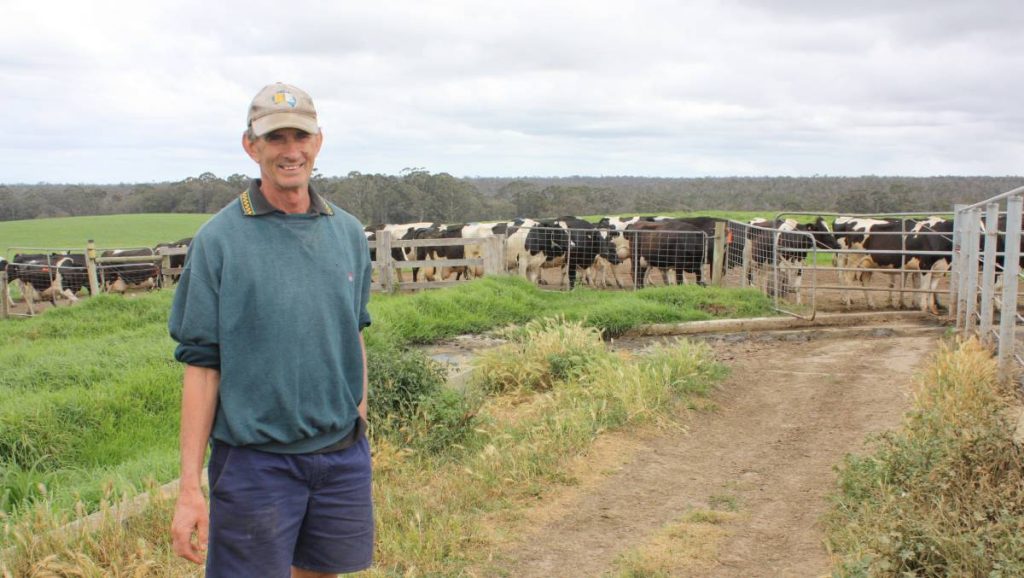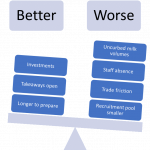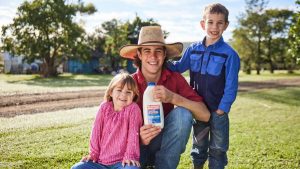
New WA milk processor Coles had to truck two tanker loads of milk more than 2600 kilometres from Adelaide to Perth to meet increased demand for its Coles Full Cream and HiLo milks in the fortnight leading up to Christmas.
At that time it was operating with only eight of its contracted WA dairy farmers supplying it milk.
As reported in Farm Weekly last week, Coles’ tenth supplier, Ruth McGregor, Busselton, plus one other farmer, only started selling their milk directly to Coles from January 1 this year.
Contracts with other processors had prevented them joining Coles on October 1 like the rest of its suppliers.
Coles said it had approached its milk processors to buy extra milk.
Under toll arrangements Lion Dairy & Drinks in Bentley processes and packages Coles-bought milk for Coles supermarkets and Brownes Dairy in Balcatta processes and packages Coles-bought milk for Coles Express petrol and convenience outlets.
It is understood Coles also approached Harvey Fresh seeking to buy milk.
Coles claims the processors said they did not have enough milk to sell it any because of heavy demand, leaving it with no option but to truck fresh milk it had bought direct from South Australian dairy farmers, to Perth.
Coles initiated direct purchase agreements with dairy farmers for its own brand milks in 2019 in New South Wales and Victoria and last year extended them into SA from July and WA from October.
Farm Weekly understands that when Coles rang one processor seeking to buy milk, that processor responded by saying it had been about to ring Coles to try and source more milk for its own products.
However, when contacted later by Farm Weekly, Lion Dairy & Drinks and Brownes said they had sufficient milk for their own needs up to and over the Christmas and new year period.
“We are well balanced in Western Australia and have sourced milk within the State to meet our (Masters milks) demand,” a Lion Dairy & Drinks spokesperson said.
The Lion spokesperson confirmed no fresh milk was brought into WA.
Brownes managing director Tony Girgis also said that while supply was tight, Brownes had sufficient milk supply up to and over the Christmas period.
“We had a very strong Christmas, most likely aided by locals holidaying within the State, we were not flush but we were not short of milk,” Mr Girgis said.
Brownes apparently had enough excess milk left after Christmas to make cheddar cheese at its Brunswick factory on Boxing Day.
Harvey Fresh’s parent company, Lactalis Australia, was also asked about its WA fresh milk supply up to Christmas but had not responded at the time Farm Weekly went to press.
Signs in dairy cabinets – in the Busselton Coles supermarket the sign was displayed into the new year – advised shoppers Coles “could not guarantee” all of the milk in its one, two and three-litre Coles milks was sourced in WA as claimed on the packaging.
However, all of the milk was sourced within Australia, the signs said.
Last Friday, after an approach from Farm Weekly, Coles issued the following statement.
“Coles last year signed direct sourcing agreements with 10 West Australian dairy farmers to supply milk for all Coles brand fresh white milk sold in the state,” the Coles statement said.
“We began collecting milk from eight of these farmers in October, however the final two did not commence supply until January 1, following the expiry of their previous supply agreements.
“An increased number of Australians spending Christmas at home last month amplified the traditional spike in demand seen over the holiday period and meant Coles was briefly unable to source enough milk from the eight directly-contracted WA farmers supplying us at that time to meet demand from WA customers.
“We initially sought additional WA-sourced milk from our processors, however they were also having difficulty sourcing sufficient milk from within the State to meet increased demand.
“As a result, in the two weeks leading up to Christmas we supplemented our WA supply with milk from our directly-contracted dairy farmers in South Australia.
“This supplementary volume equated to about eight per cent of Coles brand fresh white milk supplied to our WA stores over that period.
“To keep our customers fully informed, while this milk was ranged in stores we added signage to our milk displays in WA stores to let them know of the temporary change to sourcing arrangements.
“We have now returned to full WA supply for our fresh white Coles brand milk sold in WA.
“With all 10 of our directly-contracted WA dairy farmers now supplying milk to Coles, we believe we will have sufficient volume to meet demand from WA customers throughout the year.”
With a predominantly pasture-based dairy feed platform, WA’s dairy cows produce more milk through spring, when there is generally plenty of fresh green feed, than they do through summer into autumn when most herds are back on dry feed as their main nutrition source.
To encourage farmers to flatten their milk production curve by producing more summer milk, processors – including Coles – pay them more for their milk over summer and into autumn than they do for the rest of the year.
According to Dairy Australia, WA dairy farmers produced 364 million litres of milk in 2019-20, the lowest production level for six years.
In that time the number of dairy farms in WA slipped from about 160 to about 135.
For comparison, SA dairy farmers produced 488mL of milk in 2019-20.
WAfarmers dairy section president Ian Noakes said Coles having to truck in milk and other processors telling it they had no extra milk to sell in December “is a sign milk is in short supply in WA”.
“I find that very interesting, being short of milk in December, that’s never happened (in WA) before,” Mr Noakes said.
“It might point to problems later in the year too.
“I haven’t seen November’s (milk) production figures yet (for WA), but October’s production was down in what was a good year.
“Also, the sentiment within the industry is, I feel, not what it should be at this time.
“We’re heading into the expensive time of the year where dairy farmers generally have to buy in feed and more grain, it may well be that some decide to cull their herds harder than usual and that will affect future milk supply,” he said.
– For a period in late 2016 WA fresh milk was trucked from the Harvey Fresh factory at Harvey to a Parmalat Australia bottling plant in Darwin, 80,000-100,000 litres at a time in what was believed to be the longest milk run in the world.
The 4200 kilometre journey took a triple-road train tanker 55 hours using two drivers.
The run was initiated to help Harvey Fresh cope with a much bigger than usual spring flush of milk production by its suppliers.

























